May is Asian Pacific American Heritage Month (APAHM), and in seeking to appreciate the diversity, history, and myriad experiences of the Asian Pacific Islander community, the Asian-American Business Association, in collaboration with the Asia Business Club, Greater China Club, and South Asian Business Association, is proud to introduce this year's APAHM Portrait Project.
The Asian Pacific Islander identity extends beyond a checkbox, and we are honored to share stories from the HBS community around the richness of the Asian and Asian American experience.
We hope these portraits inspire joy, empathy, celebration, and refelection.
James Lim - JD/MBA ‘22
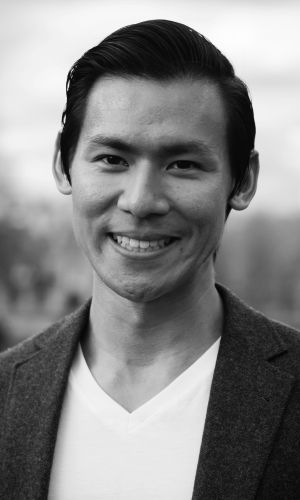
Tell us about your background:
I am a proud American, a person of Korean heritage, and a native of Los Angeles.
The Asian American identity of today is still a work in progress, caught in a tenuous balance in its journey towards a sense of true belonging, equitable inclusion, and authentic representation. We still have a long way to go, but from this imperfect reality I also derive the motivation to help tackle the work cut out for our generation. The momentum of positive change ushered in by AAPI leaders of the past and present, from Daniel Inouye to Jon Chu, must be preserved and carried on.
At the same time, I personally feel a deep sense of conviction when it comes to the power of our shared American identity and the potential of this country—unifying beliefs that transcend our differences. As a participant in, and a beneficiary of, what we know as “the great American experiment,” I feel compelled to pay it forward by contributing to our collective progress towards a better United States. Part of the difference I make after this program, I hope, will be to further this cause across the private and public sectors.
Henry Liu - MBA ‘19
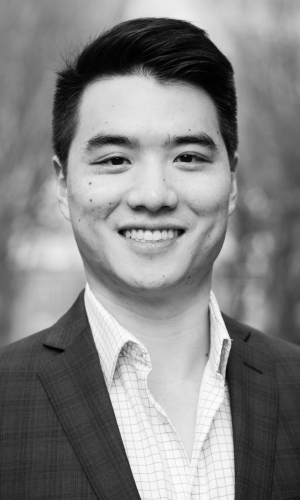
I was born and raised in France, where, as a child, I only thought of myself as French. Despite living in a homogeneous population, I never once questioned my worship of Zizou and Thierry Henry or my love of cheese and foie gras.
As I spent my formative adolescent years in New York, I became aware of the Asian stereotype and my minority status. At the time, I battled ostracization by attempting to fit in through sports—soccer, tennis, fencing. At Brown University, I was very much a jock.
Only more recently did I get a deeper appreciation of my Chinese roots, due to my family moving to Beijing and to my startup finding opportunities there. I love traveling to China, where I can soak in the culture of my ancestors. There, for once in my life, I can walk down the street without feeling others viewing me as different. That is, until I open my mouth and a peculiar mix of French, American, and Shanghainese accents imbue my Mandarin.
For a long time, this trifecta of identities has made me question where I belong. Today, I acknowledge that I cannot claim one country as my only home. But my unique background gives me the opportunity to constantly strive to be a citizen of the world.
At this moment, I’m still not sure where I’ll be after graduation. But I do know that wherever I’ll be, whatever I’ll do, I will try my best to leverage my multi-cultural background to connect with people across geographical divides, ethnic divides, religious divides, and social divides.
Chloe Ho - MBA ‘19
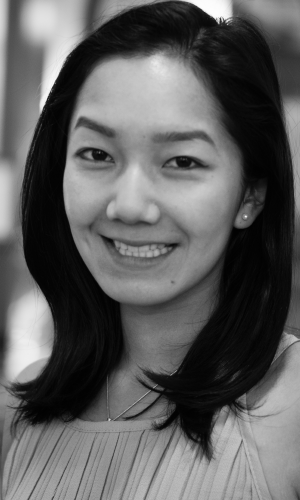
Growing up in Hong Kong, being Asian meant weekly Saturday dinners at my grandmother’s house, but it also meant going out for gin & tonics with my friends after, and netball practice the next morning. It meant cheering equally loudly for the Rugby Sevens as for the Dragon Boat races, and it meant studying Hamlet while writing a thesis on Mao’s leadership style. Everything I did was Asian, because I was Asian.
When I came to the United States, I learned that being Asian usually meant Asian-American, growing up the child of immigrants with language school on weekends, or it meant foreign tourist, in town for a few years for a job or degree. As someone who was raised in Hong Kong, but has enjoyed over ten years in the US, where did I belong? Certain categories had been established, without apparent room for shades in between, or for me.
This uncertainty led me to disengage. I shied away from the Asian student groups, not knowing which of these communities would relate to and accept me. But over time, I missed accessing the ‘Asian’ parts of my identity, from the simple (like eating chicken feet) to the fraught (discussing the delicate relationships between government, technology, and privacy in the region).
I am engaging now, hopefully and exploratively, and am learning how to figure out what being Asian can mean to me here, and now. Being Asian is complex and exhilarating, and I invite you to join all of us on the journey as we learn, and revise, and shape the experience and the definition.
Justine Hong - MBA ‘19
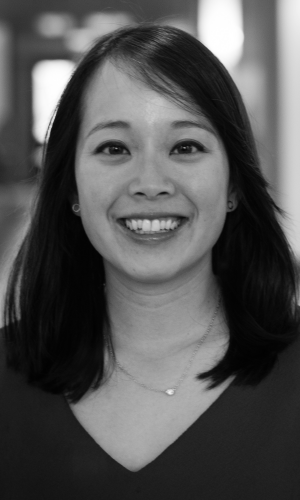
I recently got in an argument with my mom, telling her she defined success for my sister and me too narrowly. By prioritizing formal education and financial stability, she didn’t teach us about current events or help us form political views. I felt like I was constantly playing catch-up, that my understanding of the “real world” had started so much later than my peers. My mom, hurt, told me I was being unfair.
As I reflected, I realized I was the one thinking too narrowly. My childhood was full of stories about my mom’s perilous refugee journey from Vietnam to the United States and navigating the welfare and public education systems as a recent immigrant. I took countless trips to Malaysia to visit my paternal grandparents and can maneuver through a hawker market like a local. In this way, my parents exposed me to so many aspects of their lives while letting me shape my own perspective and identity.
My mom is always telling me that because of what we have, “every day is extra.” She displays, with such consistency, an ability to lead with empathy -to have a genuine curiosity for the lives of others.
From this, I learned that sharing personal stories is a way to form connections with anyone. Building relationships has helped me develop a strong sense of my values and how I want to advocate for them. This I learned from my mom, not by getting good grades in school.
Thomas Yao - MBA ‘19
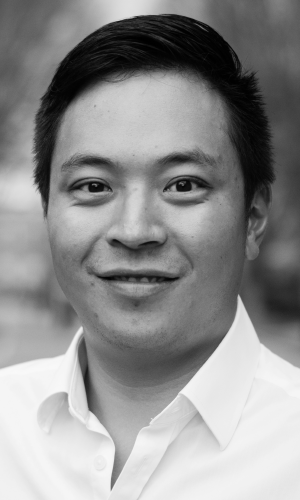
“You’re pretty good for an Asian kid!”
As a Chinese boy growing up in Germany, I learned to deal with acts of everyday racism. I had always been a passionate soccer player and assumed that at some point my skill would win over doubters. Through hard practice, I developed into a promising central midfielder; and yet, even though the coach named me captain of the under-15’s soccer team, people still just saw me as “das asiatische Kind” – the Asian kid. I simply stuck out as one of the few Asian children in Bottrop, a small city of 120,000 people.
In Germany, I was accepted by my Caucasian friends, but was keenly aware I looked different. In China, I looked like my peers and spoke Mandarin fluently, but did not feel that I fit in culturally. In the US, I was identified as a foreigner.
Unsurprisingly, I have not always felt I belonged.
Over time, I have learned to accept myself for who I am. I finally found a sense of belonging not in where I am from or how I look, but in the people I am surrounded by. They do not see me as German, Chinese, or foreign. They do not see the automotive engineer, the McKinsey consultant, or the HBS student. They just see Thomas Yao. They see me.
After nearly 30 years, I came to a realization: it is in the moments when I am authentically open, when I stay true to myself, that I am seen and can truly see others. If I have one call to action, it is this: When you feel pressure to conform, fight that urge and be the you that you cannot help but be.
Tanvika Gupta - MBA ‘20
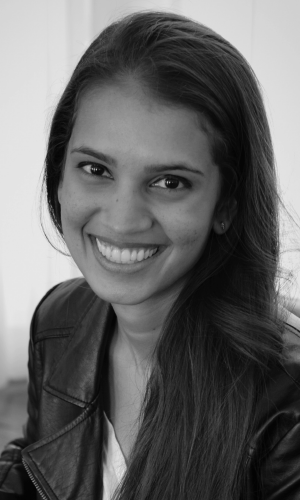
Growing up, I often asked my grandparents, Nani and Nana, to explain complicated Hindi words. For one word, rishte, they explained using photographs, videos, and people. They said that at their core, my rishte included everyone that I had bonds with. I struggled to grasp the significance of that moment, in which two of the people I cared most about shared what their rishte meant to them. Over time, I realized that the word translates to “relationships.” My relationships define me and are at the center of my most meaningful experiences; I will forever strive to pave my future with many more.
As a child, I had more passport stamps than neighborhood friends. My formative years were spent moving from place to place with my family – India to Germany to Switzerland to the UK to South Africa to the US. Over time, I learned to maintain old ties and develop new ones with those across the world: my family in India, friends scattered across South Africa, and my Duke professors. These relationships have shaped my desire to make an impact in every aspect of my life. At each stage of life, my rishte will inspire me to be kind and to be a force for positive change. When I leave this world, I want people to remember me for the stories we shared, the friendships we built, and the joy we sparked together.
Miho Sakuma - MBA ‘20
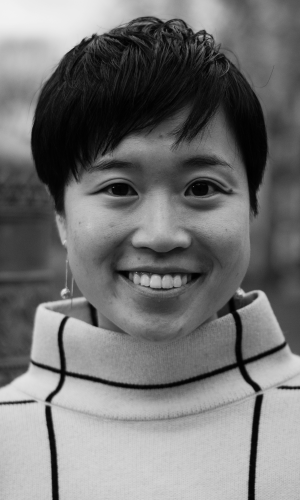
Tell us about your background:
Having been raised by conservative parents in Japan, I used to define success as a diploma from the best university and a title at a renowned firm. However, to everyone’s surprise (including myself), I quit the best university in Japan after a semester to attend a college in the U.S.. The college was virtually unknown in Japan, but it gave me the foundation to pursue the life I want, not the life that society deems successful. Since then, my goal has been to inspire and empower more Japanese people to maximize their potential in a global context.
How has your Asian identity shaped you?
I was the only Japanese in my college. To fit in, I tried to cover my Asian identity. I tried to fix my accent, I did not hang out with other Asians, and I joined the predominantly white varsity crew team as a rower. However, the conversations with friends from all over the world at HBS taught me that being a global citizen does not mean negating my identity to conform with the majority. On the contrary, I need to have a strong identity and pride in my culture to respect others. I believe we are born different not to compete, but to learn from each other.
Jonathan Yip - MBA ‘20
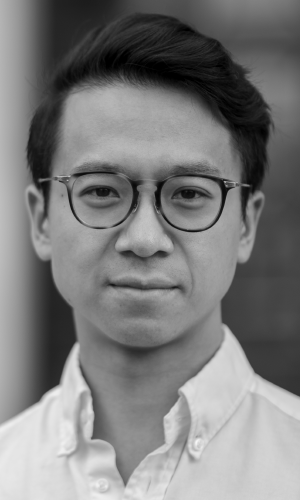
Tell us about your background:
I’m from New York City. My dad is Chinese, but he was born and raised in Portuguese Mozambique, where his parents opened a grocery store. My mom is Shanghainese and grew up in Hong Kong. They both came to the US for college. My grandmother never went to high school and was part of the last generation of women to have their feet bound in China. My grandfather fled Communist China in the 1950s with nothing and moved his family to British Hong Kong.
How has your Asian identity shaped you?
From Hong Kong to the United States, my family’s journey was only possible because of free countries and supportive governments that gave immigrants the chance to succeed. Here, my parents went to affordable state schools and received minority loans from the SBA. When I got very sick in college, a 2009 New York state law let me stay on my parents’ health insurance. As a first-generation American, I feel an obligation to pay that forward, to ensure that future families like mine have the same opportunity to succeed. My time at the Obama White House and on Hillary Clinton’s presidential campaign has been dedicated to that cause. But, more than ever, that vision of America is under attack. I will keep fighting for it.
Philip Jeng - MBA ‘19
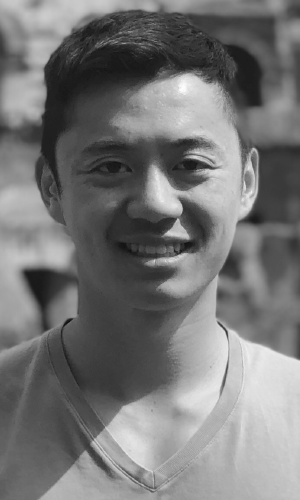
I grew in the SF Bay Area as the son of immigrant parents from Taiwan. They dedicated their lives to providing a better one for my brother and me. Like many Asian Americans, I didn’t realize how different I was until I realized how often I was viewed as a foreigner in both sides of the world. Still, I am immensely grateful for how much my parents’ upbringing over 6,000 miles away has shaped my values, mannerisms, and even accent.
This “Asian American” badge is not granted but earned. It’s stitched through millions of micro-moments composed of imposter syndrome, internal debates, and comedic misunderstandings.
“Should I be more Asian or American?”
“How do I balance being humble and confident? Community-oriented and individualistic?”
“Mommmm… I called my brother a hassle, not an ***hole.”
What was once a source of anxiety has now become my North Star. Many of the most rewarding moments of my life have been as a “foreigner”. I will continue wading further and further away from the comfort of familiarity, no matter how challenging it may be.
“It’ll be fine…I’ve been doing this my whole life”
Stan Chang - MS/MBA ‘20
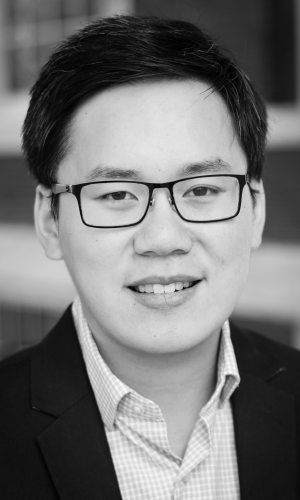
Tell us about your background:
I was born in Taipei and moved to Seattle at the age of 5 with my family. Since then, I’ve split my childhood between the US and Taiwan -completing elementary school in Seattle, middle and high school in Taipei, and college in Illinois. Prior to HBS, I spent five years at Microsoft working on wireless networking features in the Windows operating system. In my free time, I enjoy learning about world history and telling stories through my photography and drone videos.
How has your Asian identity shaped you?
I came to HBS to broaden my understanding of entrepreneurship and apply my skills to starting a company. I’ve had an immense interest in different modes of transportation since my first visit as a kid to the Boeing factory and have spent my time at HBS learning about advances in this field. Along these lines, I am exploring concepts for utilizing cutting-edge technologies to improve quality of life standards in cities around the world and hope to bring such solutions to market in the coming years. HBS has a vibrant community of entrepreneurs that have not hesitated to support each other and I’m incredibly thankful for the opportunity to grow alongside such passionate individuals.
Rebecca Teoi - MBA ‘19
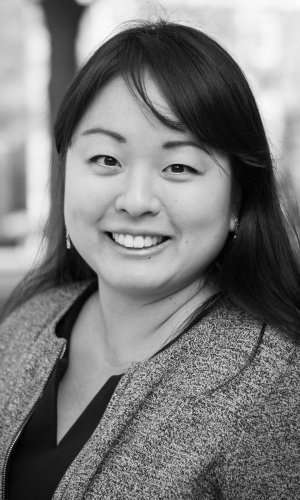
I am Brazilian of Japanese descent; the third generation in my family to be born, raised, and educated in Brazil, and part of the largest ethnically Japanese population outside Japan.
I assumed that what I sometimes witnessed in my family and other Japanese-Brazilian social circles was Japanese culture – racism, sexism, risk-avoidance, obsession with social image, and lack of emotional vulnerability. I struggled to reconcile this with my broad admiration for the hard.working, polite, and virtuous Japanese culture popularly known in Brazil.
Vocal claims at home of our alleged Japanese superiority that set us apart from “the Brazilians” (as if we were not Brazilians ourselves) were combined with the stereotype that “you were born smart and good at mathematics”. I am widely labeled as aggressive because I am outspoken and independent. The ever-present skepticism about my nationality (inside and outside Brazil) added to the feeling that my Asian look was incompatible with my personality, and often made me question where I belong.
While wrestling to find my “Brazilian-Japanese” sweet spot made me more flexible and more sensitive to other minorities, I still could benefit from a deeper change. At HBS, I made Japanese friends and visited Japan for the first time, a great personal experience that helped me reassess my previous views and opened the way for me to reconcile such a core aspect of my family heritage and ultimately, my identity.
Zoe Zhu - MBA ‘19
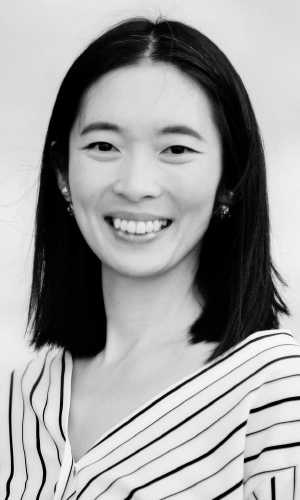
Tell us about your background:
I grew up in a traditional Chinese family. Prior to HBS, I worked at Unilever in both the Shanghai and Tokyo offices. I am also a failed serial entrepreneur, with my first company founded while I worked at Unilever, and the subsequent three startup ideas worked on during my time at HBS. I will join a consulting firm after HBS. But my startup dream is still alive.
In my spare time, I love sports, traveling, and experiencing things that I never tried before, like skydiving, bungee jumping, and campervanning.
How has your Asian identity shaped you?
Confucianism has taught me family values (.), to be kind to others (.), and to respect the rituals (.);
Taoism has taught me the balance of Yin and Yang, to be open-minded, and to be adaptable;
Buddhism, not as a religion but as a spiritual guide, has taught me to treat everyone equally, and to value more intrinsic peace rather than extrinsic materialistic things.
These ancient Asian values are the treasures of my life.
Alan Li - MBA ‘20
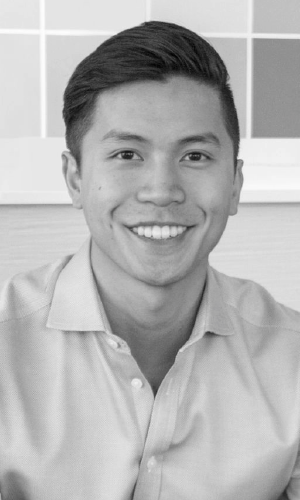
Tell us about your background:
I was born and raised in Atlanta, GA to immigrant parents from China. I also have a sister who is 13 years older and became an uncle at just 15 years old! Growing up in the South as an Asian-American felt like a balancing act. On one hand, I wanted to fit in with my classmates so I started skateboarding, listening to rap music, and eating burgers with fries. On the other hand, I attended Mandarin school on Saturdays, played the piano, and ate niu rou mian at home. It wasn’t until college that I fully embraced my Asian-American identity and started to value the rich experiences of both cultures.
How has your Asian identity shaped you?
Through HBS, I’ve further developed my passion for something at the intersection of content creation and social value. Luckily, I’m going to spend the summer with two rockstar section mates working on our startup idea in the bay area, fingers crossed! As a founder, I hope to leverage my Asian-American experiences to help shape the culture of our startup. In the future, hopefully I can give back and invest in resources and education dedicated to supporting Asian-Americans and breaking the bamboo ceiling. I feel extremely lucky to have both Asian and American qualities that have shaped me to who I am today.
Section I or Die.
Miranda Yen - MBA ‘19
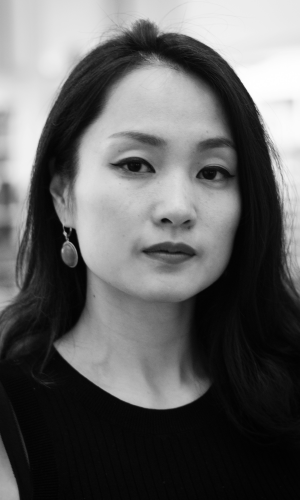
I was born in Chengdu (China) and moved to Sydney (Australia) when I was 10. For the last 15 years, I’ve been constantly on the move, in search of a place that I really belonged: New York, Hong Kong, Sydney, Singapore, Boston, and finally Shanghai – although by virtue of my Taiwanese-American husband – punctuated by frequent visits to Taipei.
I was searching for a single identity, but my life became more of a mish-mash of cultures than it had ever been.
I had known that my great-grandfather was an admired professor who pursued a PhD in the US at the turn of the 20th century. When I became pregnant in 2016, I finally decided to go through his books. Flipping through his old Chinese-English dictionaries, I suddenly realized that my struggles were nothing new or unique. The struggle of cultural identity had been experienced many times and many generations before.
I am now passionate about telling this story – the story that the interaction of cultures is as old as history itself, and that these interactions, despite their difficulties, is rich and beautiful. After graduation, I will be building a brand called Kin Objects with my husband. We will be making home accessories that showcase balance in its most beautiful form: Chinese culture with American and European influences; traditions with a distinctly modern aesthetic.
Chris Sun - MBA ‘19
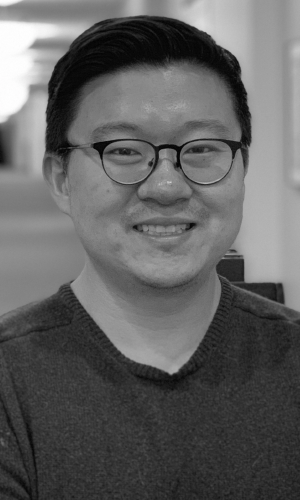
Tell us about your background:
I was born in Zhengzhou, a small city in China about 4-hours away from Beijing. My parents, seeking better opportunities for our family, immigrated to New York City when I was three years old. I grew up in the Washington Heights -an incredibly diverse neighborhood, and attended P.S. 173, a public school in NYC. I later moved to New Jersey for middle-school and high-school, but quickly realized my mistake. I returned to New York City to attend college at Columbia University, where I was determined to find the least useful subject to major in (from an employment perspective at least) – Philosophy.
What difference do you hope to make in the world?
I want to do my part to give a voice to the voiceless in our society. I want to be the role-model I've always sought out, but couldn't find, in the Asian-American community. I want to challenge and break-down the subtle and pervasive stereotyping of Asian-Americans, and show that we too have a firm place in this society. I want to ignite the good-faith debates and conversations that may spark fiery passion, but through which we ultimately forge a deeper faith and understanding of one another.
David (Xiao) Wang - MBA ‘20
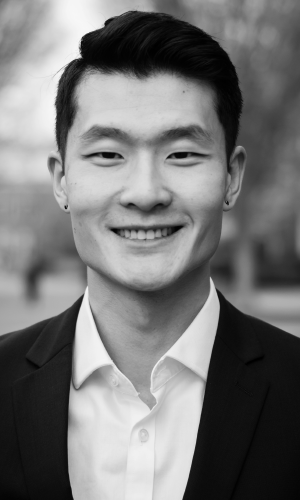
As a first-generation immigrant, I’ve always been acutely aware of the sacrifices that my parents made two decades ago in uprooting our family to provide me with better opportunities. My father went from practicing medicine in China to cleaning carpets in Chicago, and as I begin to consider my own future, I’m often overcome by the strong, deeply ingrained example they set for me, demonstrating the power, dedication, and responsibility of family.
I’ve grown up in a culture that is so different from what I originally called home, and my family has become a symbol of my past heritage, and our present perseverance. As I look into the future, I do not know where “home” will be for me. But I’ve also come to realize that the people I’m surrounded by will shape my values and beliefs far more than any geographic definitions.
Reconciling my cultural identities has been like trying to sit on both ends of a seesaw simultaneously; I’ve made peace with the fact that my endpoint is likely a middle ground. I’m grateful that my experiences have created a constant tension that forces me to decide what I believe in, resulting in a fluid identity that I’ve intentionally created, and will unquenchably continue to evolve.
Being Asian American is not a definition—it’s a process.
Irene Kwok - MBA ‘20
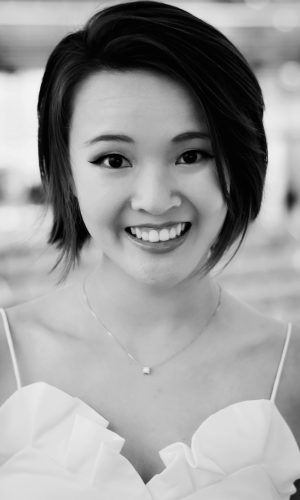
I was born and raised in Queens, New York City. My grandmother reminded me daily that I was lucky to be American-Born Chinese (“ABC”), but I grew up feeling I was neither Chinese enough nor American enough. I was torn in opposite directions by expectations from my family, my friends, my culture, my society. Trying to please everyone meant no one was satisfied, but it forced me to be deliberate and decisive about the balance I wanted to strike. This journey of self-discovery, self-acceptance, and self-love is more valuable than the destination.
For me, being Asian-American meant
Being a target for bullying and racism;
Struggling to belong anywhere;
Spinning in a state of constant identity flux.
But being Asian-American also
Taught me how to say “I love you” without words;
Inspired me to paint, write, and reflect;
Helped me embrace the differences we all have.
Ayezan Malik - MBA ‘20
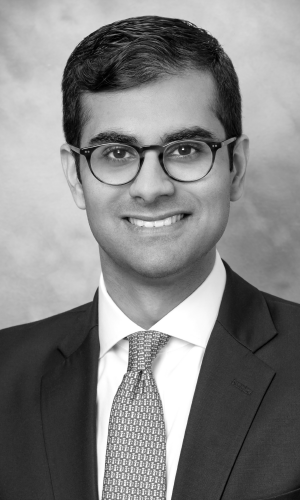
I was born in Lahore, Pakistan – an ancient city in Punjab rich in history, food and culture. That’s where I grew up for the first 18 years of my life, before coming to the US for college.
I was not an immigrant growing up. As an ethnic Punjabi in Punjab, a Pakistani citizen in Pakistan and a Muslim in a majority-Muslim country, my identity was largely homogenous and without tensions immigrants, especially minorities, typically face. In that regard, I do consider myself privileged.
But even as a “native”, my identity had tensions of its own. A former British colony, the society I was growing up in placed a premium on emulating Western identity, with perceptions of status directly correlated with, for instance, how non-Pakistani your English accent was. Speaking Punjabi was considered backwards. Within my “native” country, my seemingly homogenous identity was somehow at odds with social capital.
My school played a key role in helping me resolve this tension. The turquoise pagri (turban) was part of the school uniform. On special occasions, we wore the sherwani. The ancient equestrian game of neza bazi (tent pegging) native to the region was played alongside acquired sports of cricket, football and squash. What were mere symbols taught me to be more comfortable in, and proud of, my “native” identity.

